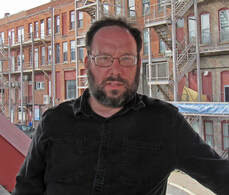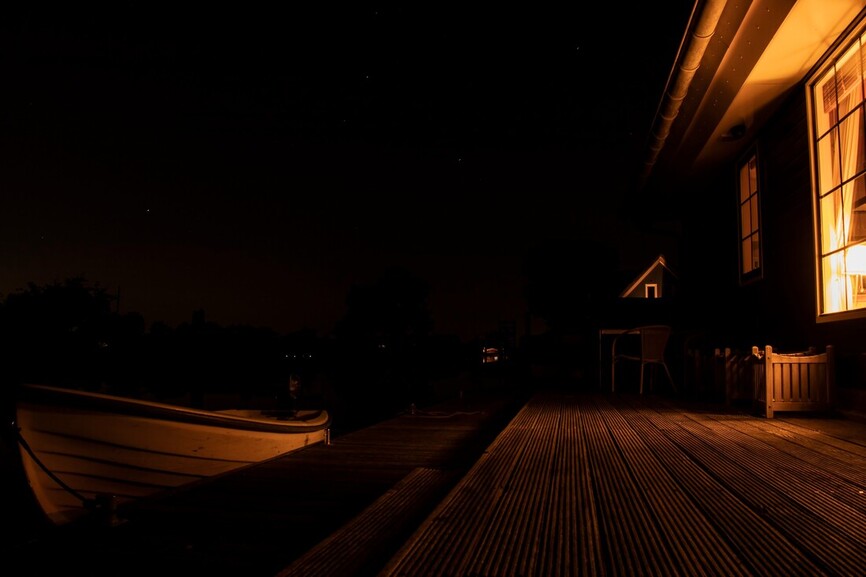|
Jeremy Segrott CC FRENCH-KISSING THE LIGHT SOCKET Oct 12th 2008 was the happiest day of my life. A month later I was in the middle of a barrage of bizarre, scary, and absolutely relentless intrusive thoughts ordering me to French-kiss a light socket. It lasted for around a month or so. I did my bedtime routine with my wife and daughter, where we sat in my daughter’s room and I rubbed her back to get her to go to sleep. As I hummed along with her lullaby CD and stroked her back to send her into dreamland, as my wife sat in the recliner and watched us, inside all I could think about was electrocuting myself, over and over again. Kissing a light socket seemed like a very painful and grotesque way to kill yourself, my therapist said. I told him I didn’t pick it, it just kind of picked me. It seemed to make sense that if you were going to go it should be painful, grotesque, and shocking. Maybe I saved my own life by contemplating suicide in this awful fashion; if I had thought about pills or carbon monoxide or something tranquil I might have done it. But again, it’s not really like I wanted to kill myself, my mind just was drawn to the thought of doing it. It was like some object circling a drain, and the spiral was getting tighter and smaller, about to go in. But on October 12th, 2008, I was so happy I thought I would burst into exploding fireworks. My family and I went to Binghamton to the Zoo and the Discovery Center. My daughter was four. For me, a correlation has been forever drawn between that otherworldly, overwhelming happiness and the brilliance of the change of the trees to fall colors. I thought that there was something about the patterns of colors, the reds and yellows and oranges, that had some message for me. I remember taking a cigarette break at my job at the hotel in Cooperstown and going outside and looking at the foliage and bursting into tears at the colors, knowing on some elemental level that I had to die. It’s hard to explain. I’ll never get it expressed fully, the way it was in my head. The secret recesses of my thoughts at that time were so complicated and arcane. I was filled with a kind of certainty that I was already dead somehow. People say that, and they mean something figurative. I had a literal premonition that I had died at some point in my past and that it was only with the help of some kind of divination or messages from beyond for me to decode, that I was waking up to the living death I was existing in. That all of reality—working, being with family, listening to music, eating, talking, sleeping—was part of a huge puppetshow erected for my (punishment? torture?) I don’t know. But I had convinced myself it wasn’t real. I’ve had this since I was a teenager, this suspicion I was already dead. And this knowledge of death and afterlife was, oddly, part of the happiness, the energy, the wonderful feelings of contentment. That weekend, of October 12th, I must have written hundreds of pages of notes for my novel. I had major breakthroughs about characters and symbols in the novel, that were tied to the strange understandings about the foliage-change, the life turning to death. I had the thought that all of the Russian spies in my novel would have a color attached to their name, corresponding to a color of autumn. Except for the main spy who like his father, would be named Klorofil, a reference to chlorophyll which is what gets choked off in leaves as they turn in autumn. He and his father represented some kind of “evergreen” eternity that had vigor and permanence, and this was in turn connected with the Christianity of the father who was also a spy but retired and thinking of his own afterlife and immortal soul. Green for immortality. I stayed up all night writing and coming up with new ideas for my writing. I was supernaturally productive. I read all of Nabokov’s The Gift in like three days, and it is still my favorite novel: the poet coming to an understanding of his own powers of artistic composition, making peace with fate and love. I burst into tears at the dinner table the next evening and my wife asked me what was wrong, and I said, “I just feel so happy. I love you both so much.” Like I said, though, a month later I couldn’t get the fascination with electrocuting myself out of my mind. Every CD I listened to as I drove around, the lyrics I heard—Wolf Parade’s LP Apologies to the Queen Mary, Fleet Foxes’ “Hummingbird,” Explosions in the Sky’s “First Breath After Coma” (actually that’s instrumental but it still “meant something” to me)—I thought contained secret messages of death, and acceptance of falling into death. It all wove together into a unified carpet of thoughts always underneath me, about death’s mystery that would never be solved. But suicide seemed like a logical pathway into this complicated marbling of death-in-life that only I could see, and couldn’t tell anybody about. I was working at the hotel as a security guard and I also thought about jumping from the fourth floor. I had an access key card so I could have gone into any hotel room in the building, which was getting vacant as the season was ending. I could have picked out a window to jump from that would have spelled certain death. But the electrocution was more compelling. I distinctly remember one evening when I was particularly scared at the intrusive thoughts and I went to turn on some lamps in the lobby only to find that all of the bulbs had been taken out and I was faced with those empty sockets tantalizing me. I wasn’t dumb. I eventually told my wife and my therapist about my strange, pervasive suicidal thoughts. Soon I was in a “hospital for people who think too much,” and I wasn’t free to leave. I had a long intake interview where they asked me all kinds of strange questions that I answered truthfully: did I think I could read other people’s thoughts, did I have special powers, etc. I told them about how I thought I was already dead. My wife was next to me and heard it all. They were tripping over themselves to get me on psych meds. I went into the hospital and didn’t come out for what seemed like forever. It was a peaceful place but no matter how many friends I made or what skills I learned to try to address the emotional tides of what I eventually read on pamphlets was “bipolar disorder,” it was an extreme left turn of life. Over the next eight years I would be hospitalized five times. And I lost my wife, my job, and my mind all in one week in 2010, and I fell down dozens of times, had religious manias, was declared disabled, entered into the bureaucracy of healthcare and mental health, tried to explain it all to future girlfriends, scared my family a bunch of times, and attempted to get a grip on my the steering wheel of my mind. I would like to tell you that the conception, the sensation, of being “already dead in life” has completely left me but it hasn’t, not all the way. I still scare myself with paranoid thoughts and weird personalized rituals and fears. I haven’t gotten 100% used to this mental furniture, I don’t know if I ever will.  Jesse Hilson is a freelance newspaper reporter living in the Catskills in New York State. His work has appeared, or will appear, in AZURE, Maudlin House, Pink Plastic House, Expat Lit, Misery Tourism, Fugitives and Futurists, Apocalypse Confidential, Heavy Feather Review, Excuse Me Mag, and elsewhere. His crime novel Blood Trip was published by Close to the Bone (UK) in April 2022, and his poetry chapbook Handcuffing the Venus De Milo will be published by Bullshit Lit in November 2022. He can be found on Twitter and Instagram at @platelet60 and he has a newsletter at cholorohemoglobin.substack.com. Comments are closed.
|
AuthorWrite something about yourself. No need to be fancy, just an overview. Archives
April 2024
Categories |

 RSS Feed
RSS Feed
